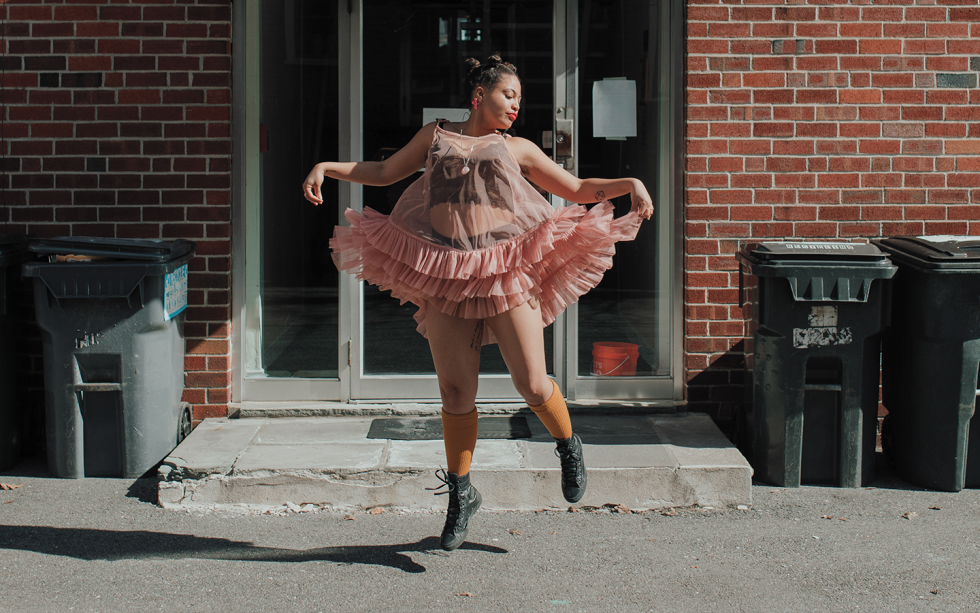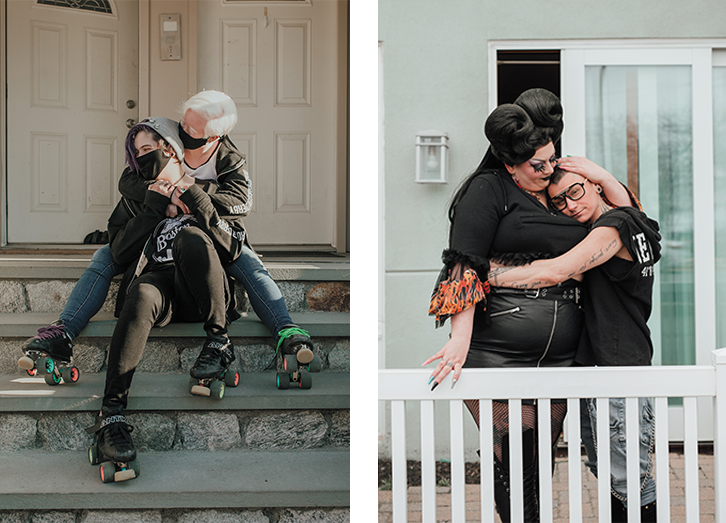A Subtle Transformation
In “Stray: A Memoir,” Stephanie Danler ’06 confronts the demons of her past.
Read The StoryA documentary photo series by Ally Schmaling '14 celebrates queer personhood, chosen family and community resiliency amid the coronavirus pandemic.

As a freelance photographer, storytelling has always been at the core of what I do. Energetic exchange — that is my medium. So when the whisperings of COVID-19 began and gig after gig was swiftly canceled, my career turned on its head in an instant. Alongside the grieving, I’ve had to reimagine what the future of my career could be, and what photography and storytelling could look like under this new set of circumstances.
After some wallowing, I got that itchy feeling in the back of my brain that said, “This is a pivotal moment. You need to document this.” So I started “Queerantine,” a documentary series celebrating queer personhood, chosen family and community resiliency amid the coronavirus pandemic. Starting first in my neighborhood of Jamaica Plain, Massachusetts, but quickly expanding to the greater Boston metro area, I have photographed nearly 50 different queer households to date.
I had initially caught wind of similar projects on social media, most notably #frontstepsproject, a movement started by photographers and typically capturing upper middle class nuclear family portraits within physical social distancing guidelines. I wanted to adopt that framework with a more documentary and activist edge. In documenting my own community, the LGBTQ+ community, I wanted to capture folks in a less poised and more personal way. I wanted to show the beautiful breadth of what queer family, and queer love, looks like.
All subjects in this series were photographed at their front doors — sometimes in their bedroom slippers, sometimes in full drag. I always stood 10 feet away, on the sidewalk, masked and cautious. And I asked all of my subjects the same two questions: “What tiny, unexpected moments of joy have you found in this mess?” and “What does queer community look like/feel like/mean to you?”

In this time, especially, I am poignantly reminded that the queer community has survived epidemics like the AIDS crisis and, like other marginalized communities, has historically been unprotected or unacknowledged by legal and institutional support. Without systemic support and recognition and, in many cases, without the assumption of nuclear family as a support network, queer people have had no choice but to develop pathways of community compassion to survive and to thrive.
See more “Queerantine” photos online at allyschmaling.com or on their Instagram account.
In “Stray: A Memoir,” Stephanie Danler ’06 confronts the demons of her past.
Read The StoryThe Class of 2020 entered college in a time of political uncertainty. They forged deep connections and believed…
Read The StoryIn March and early April, as essential workers fought at the front lines of the COVID-19 pandemic and others flattened…
Read The Story